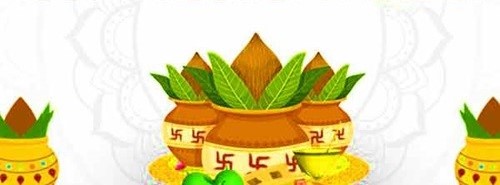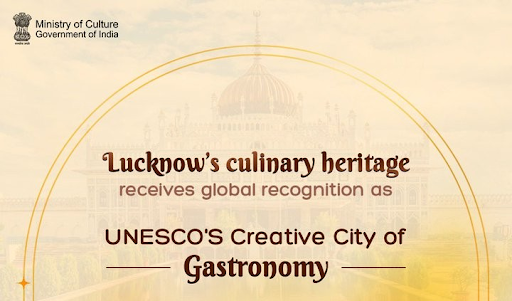Description

Disclaimer: Copyright infringement not intended.
Context: In her address, the President said, “On the auspicious day of Chaitra Sukladi, Ugadi, Gudi Padwa, Cheti Chand, Navreh and Sajibu Cheiroba, I extend my greetings and best wishes to all our citizens.”
Details:
- These festivals, which mark the arrival of the Indian New Year, are a symbol of our faith and the bearers of our ancient culture.
- They are beneficial to strengthen the spirit of social harmony and brotherhood in our society.
- We also express gratitude to nature through these festivals.

Chaitra Sukladi:
- Also known as Ugadi and Gudi Padwa, is the first day of the New Year in the traditional Hindu calendar.
- The beginning of the New Moon is celebrated in April or March every year.
- Today is dedicated to Lord Brahma.
- is a sign that the harvest season is about to begin.
- Each state in India has its own traditions, but many people start the day with a traditional oil bath and a pilgrimage to a temple where special prayers are offered.
Ugadi:
- Ugadi also known as Samvatsarādi, is New Year's Day in the Indian calendar and is celebrated in the states of Andhra Pradesh, Telangana, Karnataka and Goa.
- The first day of the Indian lunar calendar of the month of Chaitra is celebrated with a festival in this region.
- Ugadi Day marks the first New Moon after the Equinox.
- Kolamulus or Rangolis are beautiful patterns and designs drawn on the floor to commemorate the day.
- This day is celebrated by painting colorful patterns in a place called Muggulu, decorating doors with mango leaves called torana, buying and giving gifts like new clothes, giving alms to the poor, special bathing and oil massage, preparing and sharing special food called pachadi and visiting Hindu temples.
- Followers of the Souramana calendar system observe Ugadi in Karnataka when the Sun passes through the constellation Aries, the Baisakhi festival, and is locally known as Souramana Ugadi or Mesha Sankranti.
Gudhi Padwa:
- It is a spring festival that marks the traditional new year for Marathi and Konkani Indians
- In Maharashtra, Goa, Madhya Pradesh and nearby areas of Dadra, Nagar Haveli, Daman and Diu, it is celebrated on the first day of Chaitra month to mark the beginning of the new year
- This spring festival is celebrated with colorful floor decorations called rangoli, a special Gudhi dwaja (clothing or a piece of cloth decorated with flowers, mango and neem leaves, sugar crystals).

Cheti Chand:
- The Sindhi community celebrates this day as Cheti Chand as the new year and observed as the emergence day of Lord Jhulelal.
- Prayers are offered to Lord Jhulelal and the festival is celebrated by making delicacies like Tahiri (sweet rice) and Sai Bhaji (spinach cooked with a sprinkle of chana dal).
Navreh:
- It is the first day of the Kashmiri Hindu New Year for the Kashmir pandit population.
- This word is derived from Sanskrit Nava Varsha, meaning the new year.
- The day is dedicated to their Goddess Sharika and they pay homage to her on that day.
Sajibu Cheiraoba:
- Sajibu Nongma Pānba, also called Meetei Cheiraoba or Sajibu Cheiraoba, is the lunar new year festival of the people who follow the religion of Sanamahism in the Indian state of Manipur.
- The name Sajibu Nongma Pānba derives from the Manipuri words: Sajibu - the first month of the year which usually falls during the month of April according to Meitei lunar calendar, Nongma - first date of a Month, Pānba - to be. Literally, it means the first day of the month of Sajibu.
|
PRACTICE QUESTION
Q) Which of the following statements is/are incorrect with reference to Indian New Year Festivals?
a. Gudhi Padwa is a spring festival that marks the traditional new year for Marathi and Konkani Indians.
b. Navreh is the first day of the Kashmiri Hindu New Year.
- Only a
- Only b
- Both a and b
- Neither a nor b
Answer: Option 4
|

https://www.pib.gov.in/PressReleasePage.aspx?PRID=1909243















